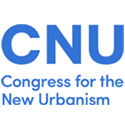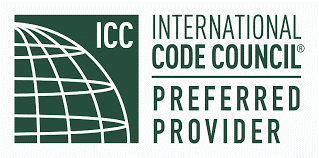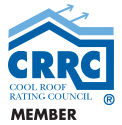Building for the Future
Modern Materials, Traditional Neighborhoods
WHAT IS NEW URBANISM?
New Urbanism is a philosophy of regional planning and community design that is aimed at guiding sustainable urbanization and achieving a healthy public realm. It looks to the past to find the path forward. By exploring the elements that make historic neighborhoods desirable, including proximity, diversity and walkability, and combining those elements to create an architecture blending modern building materials, conveniences and resiliency, the new urban movement hopes to build healthy communities where people can thrive. The Polymeric Exterior Products Association is committed to furthering the principles of New Urbanism and traditional neighborhood development by advocating for the use of durable, sustainable polymeric materials in traditional neighborhood design.
PEPA is a partner with the Congress for the New Urbanism, a non-profit organization promoting the development of walkable urban communities, and the American Institute of Architects.
Architectural Design For Traditional Neighborhoods
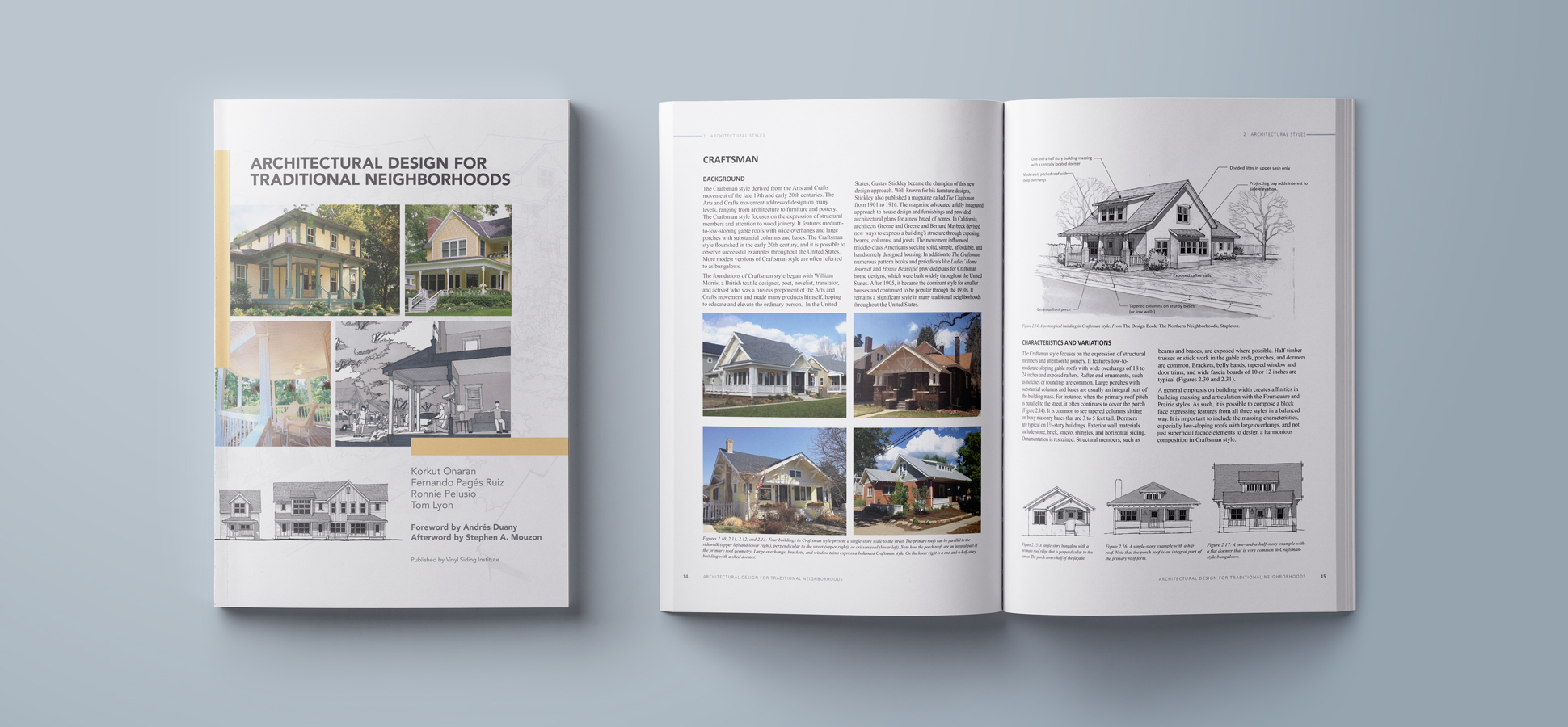
Architectural Design For Traditional Neighborhoods
PEPA (formerly VSI) commissioned this book from some of the leading thinkers in the new urbanist movement to provide guidance on the design elements and products needed for developing traditional neighborhoods that are diverse, walkable and sustainable.
Written by Korkut Onaran, Fernando Pagés Ruiz, Ronnie Pelusio and Tom Lyon.
With a foreword by Andrés Duany and an afterword by Stephen A. Mouzon.
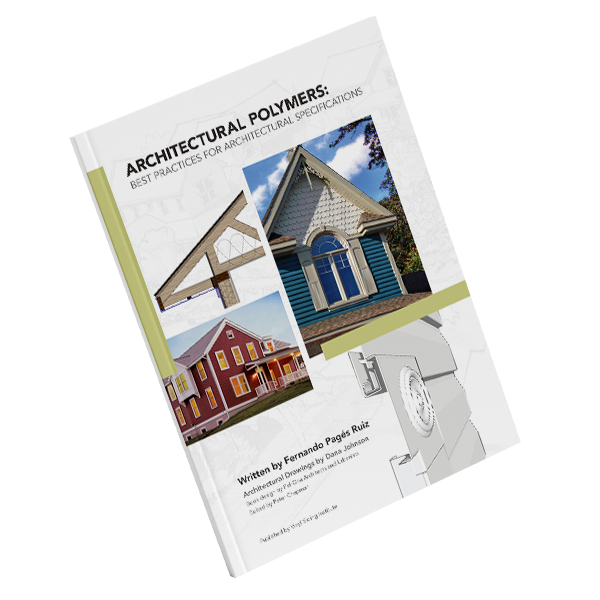
OTHER BOOKS IN THIS SERIES
ARCHITECTURAL POLYMERS: BEST PRACTICES FOR ARCHITECTURAL SPECIFICATION
This guide aims to provide full control of the design’s aesthetic outcome by placing the power of good design details and recommended installation practices within easy reach of the Architect.
Written by Fernando Pagés Ruiz
"This book is a useful addition to the New Urbanist literature because it introduces simple and economical design principles such as: don’t clutter the individual facade with articulation and ornamentation; rather pay attention to the whole block face as a unified design. It discusses what to require by code, and perhaps more importantly, what not to code: costly materials will not overcome dismal suburban site plans. Instead, a proper designer will guide developers to invest in what will create the most value.”
Andrés Duany
Founder, Congress for the New Urbanism
Webinar

WEBINAR: KEEPING TRADITIONAL DESIGN ALIVE
Learn about how architects and builders are combining modern technology with authentic, traditional neighborhood design that attracts the eye, pleases the soul and stands the test of time with a webinar hosted by Designer, Builder, Author and Consultant Fernando Pagés Ruiz and PEPA Vice President, Matt Dobson.
The webinar highlights ways architects, designers and planners can use vinyl siding and other polymeric cladding in traditional neighborhood design and still remain true to their practice, as well as how polymeric exteriors stand the test of time when it comes to sustainability and resiliency. Gain a better understanding of the variety, versatility and innovation of vinyl claddings, trim, cellular PVC and other polymeric architectural products
Each participant can earn one hour of AIA/HSW LU credit. Schedule a session today.
Learning Opportunities
Below is a list of upcoming events as well as virtual and in-person learning opportunities. Join to learn more about polymeric products, resilient design, the CNU and so much more.
There are no upcoming events at this time.
Limitless Performance and Flexibility
For traditional neighborhoods, the versatility of polymeric products extends from siding and accessories to the ornate architectural details. These materials relieve worries of painting, swelling, cracking, warping, or insect damage, which means longer-lasting, more resilient communities. And since a wide variety of trim, siding and accessory products are now available in vinyl, virtually any design is possible.

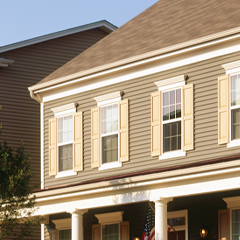
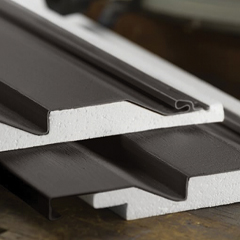
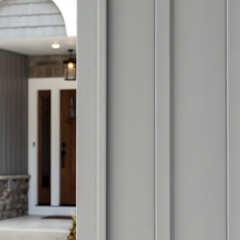
Advantages Of Polymeric Products
The truly carefree choice for building traditional homes with modern performance. Polymeric products are engineered to deliver maximum protection and beauty with minimal maintenance for years to come.

Anything But Ordinary
Choose from a virtually endless array of colors and textures to pursue any architectural style or design goal.

Proven to Withstand the Elements
Can withstand winds of at least 110 mph and resist damage from impact.

Optimized Thermal Performance
Insulated vinyl siding is tested and verified to help increase the home’s R-value and increase efficiency.

Virtually Maintenance-Free
Polymeric products don’t require painting or caulking and can be cleaned with mild soap and water.
Polymeric Products
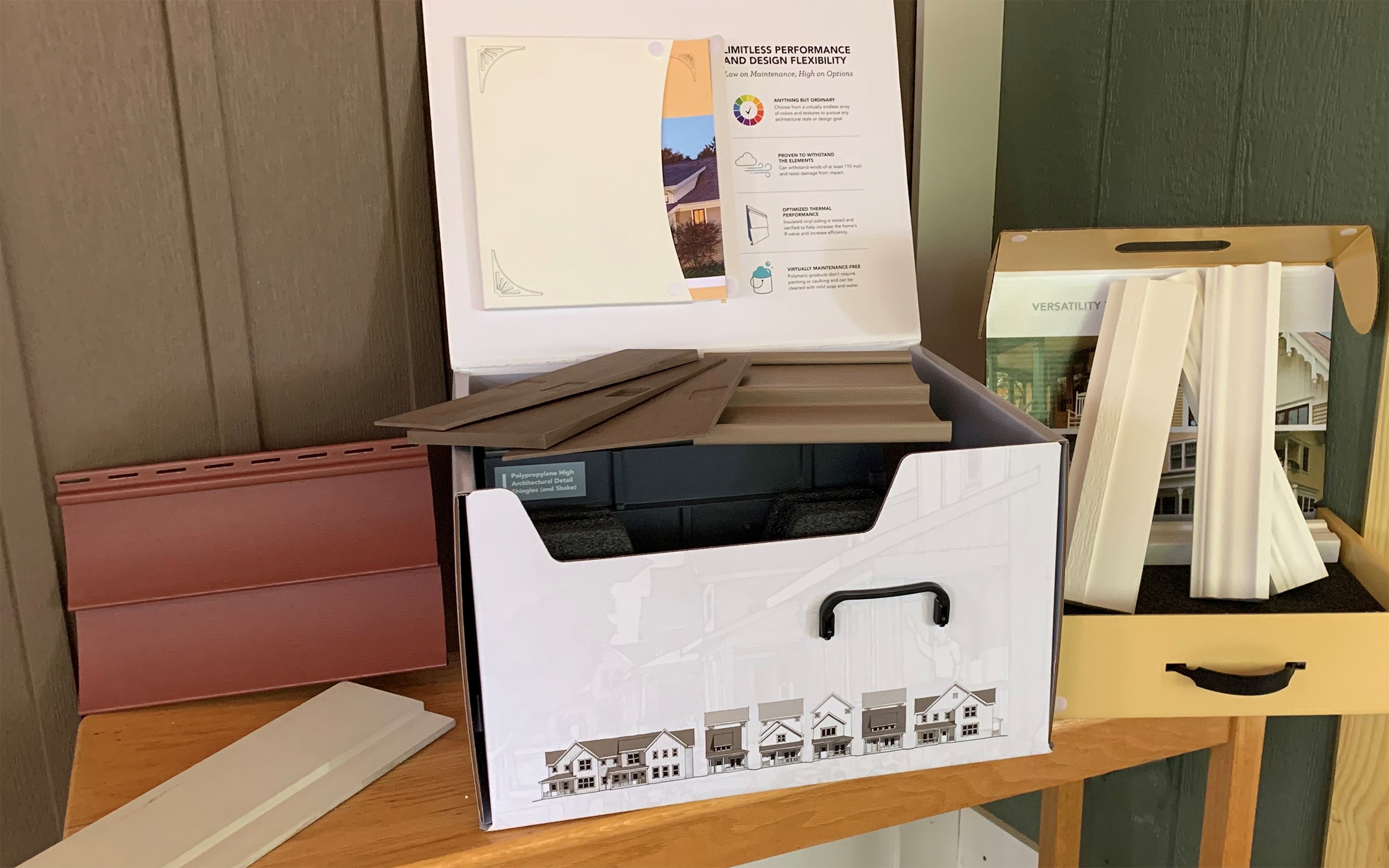
Polymeric Products For Traditional Neighborhoods
Polymeric materials offer versatility and durability to authentically reproduce the classical materials used in traditional neighborhoods. This sample kit includes a collection of products traditionally made from wood, allowing you to see and touch real products that showcase the wide spectrum of colors, accessories, and trim available from our manufacturing members. See the versatility of polymeric products for yourself—click the button below and fill out the form to request your own polymeric products sample kit.
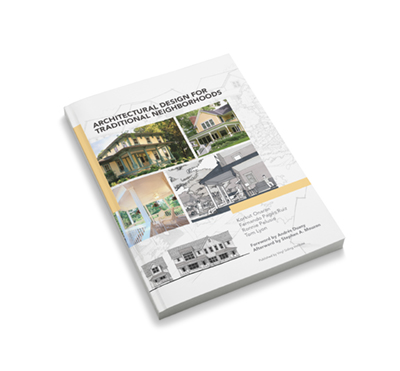
LEARN HOW TO DESIGN SUSTAINABLE COMMUNITIES
Architectural Design For Traditional Neighborhoods is a succinct manual describing the design elements, architectural patterns and best products for creating resilient, walkable and diverse communities in the urban setting.
Contact Us For More Information
Frequently Asked Questions
Find the information you need fast about PEPA’s work—in advocacy, workforce training and certification, building code resources, sustainability and more—in our Frequently Asked Questions.

